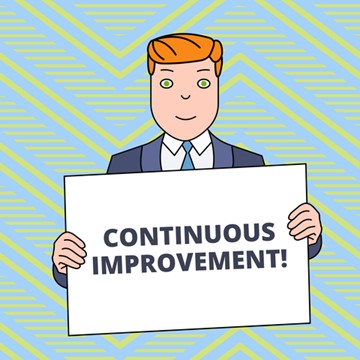by virtualworks | Mar 26, 2023 | Leadership, Mastery, Productivity, Team Work, Time Management, Uncategorized, working from home, working remotely
 One of the key questions that a remote business employer receives from clients, or those thinking of starting their own virtual business is, “How do you know your employees are getting anything done? I mean, you are paying them but, what are you getting in return?” The easy answer is ‘Outcomes and Results’, as noted in our last blog post Managing a Changing Environment.
One of the key questions that a remote business employer receives from clients, or those thinking of starting their own virtual business is, “How do you know your employees are getting anything done? I mean, you are paying them but, what are you getting in return?” The easy answer is ‘Outcomes and Results’, as noted in our last blog post Managing a Changing Environment.
On the flip side, this article tackles some of the big questions asked by some of our remote employees:
- How do I know if I am doing a good job?
- Is there more I could be doing? Am I just one software program away from being able to obtain more work?
- What are other employees for the company doing and how do we all fit together?
- How do I work collaboratively with other employees to share ideas?
- What is the big picture for the company and how is my work a part of this?
The ability to answer your remote employees’ questions helps them know where they stand in the big picture of your organization and can increase productivity.
Although much of a remote employee’s work is done using technology, clear communication goes a long way, even in these days of remote ‘everything’. Whether through email, a phone call or an in-person meeting, remote employees can accomplish a great deal by using all forms of communication and answers the questions above.
How do I know if I am doing a good job?
Employees should simply ask the question to their employer and be prepared for potential constructive criticism. Employers should be monitoring the progress of the employee’s deliverables and be ready to provide this feedback, whether positive or constructive. Consider the setting to provide this feedback. An in-person meeting may be warranted, as an email may not provide the sentiment and feeling behind such a conversation.
Is there more I could be doing? Am I just one software program away from being able to obtain more work?
Again, employees should ask the employer if there is any available work, followed up by asking what tools and experience are required to do this work. Employers should check in with their employees to see if they have an interest in taking on other work and checking to see if there has been any change in their available tools to help you with your business.
What are other employees for the company doing and how do we all fit together?
Employers may want to consider planning opportunities for all employees to get to together to share work ideas and get to know who is playing what role in the business. Additionally, employers may want to create an employee list with contact emails and identification of who is working on what files, if it is secure to do so.
How do I work collaboratively with other employees to share ideas?
Following on the last point, employees may want to take advantage of opportunities to meet with others in the organization and share ideas with the entire team. Perhaps send an email to keep in contact and consider asking your colleagues if you have a question or need help, if your employer is ok with that.
What is the big picture for the company and how is my work a part of this?
Employees should have this discussion with their employer not just at the time of hire, but every once and a while to check in. The organization may have changed or new projects started and it is important for one to know where their efforts in an organization have an impact.
These questions are just the tip of the iceberg; making communication with and between employees integral in a remote business is an important component to the relationship. So, if you’re feeling stuck, remember to just ask!
by virtualworks | Jan 30, 2023 | Business, business growth, Marketing, Mastery, Team Work, Time Management, Value Based Fees
 When an organization needs to write a proposal, it can be for many different reasons, such as business proposals, project proposals, proposals for research funding or non-profit organization funding, each of which require a particular focus. Today I’ll focus on writing proposals in response to a solicited request, like contract work.
When an organization needs to write a proposal, it can be for many different reasons, such as business proposals, project proposals, proposals for research funding or non-profit organization funding, each of which require a particular focus. Today I’ll focus on writing proposals in response to a solicited request, like contract work.
All organizations need revenue, whether they are non-profits, associations or business enterprises. While it’s great to have repeat clients and members, there are times where organizations have to get out there and look for that work by other means and one method is by responding to a Tender, Request for Quotation, Request for Services, Request for Proposal, etc.
At times when an organization is provided with one of these Request documents, it can be met with some shock as to the amount of information being requested for a simple piece of work. Why so much detail? In short, some of the Requests may be from clients that use public funds and are accountable for how those funds are spent or the client is simply seeking good value for money and are looking for evidence from organizations that their potential contractor is capable of providing the services in a manner that is of good quality and is cost effective.
So, what makes a good proposal?
Like any consumer, the client is looking for good value for the money they plan on spending. By responding to what they are looking for, or solving their problem, stated in the request in a clear manner, a well written proposal can give you the edge on the competition.
There are many areas on the internet to find information on how to prepare a proposal. For example, if you are considering preparing a proposal for the Government of Canada, you may want to check out their site at buyandsell.gc.ca on Preparing Proposals.
Let’s take a look at some of the Do’s in proposal writing:
- Do read the request thoroughly to understand what the client is looking for. You need to understand where the client is coming from in their current state, their needs, and possible opportunities to provide a solution to their problem.
- Do ensure the goods or services are something your organization provides. If you are looking at a Request that is asking for something you may not provide, you may have to look at sub-contracting a portion of that work (if allowable), or it may not be worth your time to respond.
- Do ask questions where something is not clear, or you need information to help you prepare your proposal. These questions are helpful to the organization submitting a proposal and it may tell the client where they need to make the request clearer for all.
- Do watch out for question deadlines and submission deadlines – Proposals received after deadlines are usually not allowed.
- Do really take a look at the criteria in the Request. In most cases it is the criteria what your proposal will be reviewed against, so make sure to answer all parts of each criteria listed in the Request document.
- Do plan ahead to make sure there is enough time not only to write the proposal, but research the Client, understand the resources you have available, and have the proposal reviewed a few other people in your organization to make sure the submission is aligned with the Request. Another pair of eyes is always good!
The obvious Don’ts are those actions contrary to the Do’s above and:
- Don’t have the client search on external links for supporting material, especially if the request states that all supporting material must be in the proposal. In many cases, information from external sources can’t be taken into consideration and proposals are reviewed as they are provided, with no opportunity to add more in later. NB: some exceptions may be allowable, but they will probably be stated in the Request document, if they are.
- Don’t put it on your references to fill in the blanks of what should be in your proposal. If there is a request to provide references these are most likely only to verify what was stated in your proposal.
While it was mentioned above that Requests are received from clients, there are also many sites where organizations can search for potential Request documents to provide a proposal to such as MERX, Biddingo. Also check your city’s municipal, university, hospital or non-profit websites.
Best of luck in your proposal writing endeavors!
by virtualworks | Jan 2, 2023 | Accomplishments, business growth, daily lfe, holiday, Leadership, Mastery, office management, Team Work, Time Management, working from home, working remotely
 These last few weeks can be labelled as busy, chaotic, and exhausting and I’m not even talking about work! I’m talking about the holiday time off that just passed! While I am glad to be back at work, it’ s tough to get back into the routine again. On that note, I hope you have all had a wonderful, stress-free holiday. For those that are perhaps not feeling the back to work grind, I offer the information below.
These last few weeks can be labelled as busy, chaotic, and exhausting and I’m not even talking about work! I’m talking about the holiday time off that just passed! While I am glad to be back at work, it’ s tough to get back into the routine again. On that note, I hope you have all had a wonderful, stress-free holiday. For those that are perhaps not feeling the back to work grind, I offer the information below.
Whether you had a relaxing time off, or you still need a vacation from your vacation, the transition back to the day-to-day routine of work, without the distraction, food and fun of the holidays is no easy task. So, first thing’s first: don’t be too hard on yourself, we’re all a little rusty getting back into the swing of things.
At times people may experience depression, the “winter blues” and anxiety. With winter settling in and the excitement of the holidays over, we push ourselves back to work and may not always recognize when it is time to take care of ourselves.
Don’t forget if you do need help right away the Canadian Mental Health Association has resources available.
A couple of years ago CBC posted an article on the anxiety of returning to work after the holidays and what you can do to manage it.
The signs of the “Winter Blahs” can include:
- Lack of motivation and loss of interest;
- Low energy;
- Difficulty sleeping; and
- Difficulty concentrating
However, there are a few ways to manage this form of depression that tends to linger during the winter months, so why not give some of these a try!
- LIGHT THERAPY:Use of an artificial light source, as light therapy to create the sunlight you would otherwise get during the summer months.
- SMALL ACCOMPLISHMENTS:Boost your motivation by completing small manageable tasks, recognizing each task as an accomplishment and step to a larger goal.
- HEALTHY EATING:Foods that contain the minerals and nutrients to get you through your day not only impact your physical health but can also be beneficial to mental health.
- STAY ACTIVE: (my personal favourite) Being active for 30 minutes per day is known to provide a fantastic boost of energy, confidence and provide an overall improvement to one’s mental and physical well being.
- EMBRACE THE COLD:As the winter is tucking itself in for a little while, there is no getting away from it and we may as well embrace it by getting out there and enjoying what it has to offer, such as skiing, snowshoeing, skating and even bundling up for that walk on your own or bring a friend.
So, what about getting used to that routine again? Even if you aren’t feeling the blues, maybe you are feeling the difficulty of getting back to the routine, so give a try with:
- Don’t set yourself up for negativity! – “Be the positive change you need.” I know it sounds a little strange, but taking a positive attitude to go back to work can be an excellent start to going back to work.
- Be ready for the pile of work and chunk it out into steps – sure you have been away from the office for a little while, so you might want to anticipate the pile of work that may be waiting for you.
Slow and steady wins the race:
- Step 1: Make that coffee have a seat
- Step 2: Make a list of the things that need to be completed
- Step 3: Then chip away at it, one thing at a time
- Be patient with yourself.
Bring something to work or do something nice for yourself and ease back into it. Remember it is a new year, so this can be a fresh start to fantastic things to look ahead and look forward to.
You can do it! Wishing you everything wonderful for 2023 from Barbara B. and the team at VWI.
by virtualworks | Sep 25, 2022 | Business, business growth, Leadership, Marketing, Mastery, Outsourcing, Productivity, remote meetings, Remote Office Management, Team Work, Time Management, Travelling, working remotely
 Remote support was pretty much non-existent 25 years ago. Facebook didn’t exist 20 years ago. Times, they are a’changing…
Remote support was pretty much non-existent 25 years ago. Facebook didn’t exist 20 years ago. Times, they are a’changing…
Remote work has grown in popularity over the last 5-10 years and more so with the pandemic we’ve been dealing with the past 2+ years, it’s become a necessity. The Internet and evolving technology drive the ability for remote support workers to be just that: “remote”. That can mean being remote locally or remote internationally; it can mean telecommuting for employees or freelancing as a contractor from anywhere on the planet for clients anywhere on the planet. The world has become larger and smaller at the same time: larger because remote working can easily tap into new markets around the world and increase competition (which can be a good thing); smaller because it takes less time and cost to do so.
It wasn’t too long ago that the average person didn’t know too much about video meetings or needed an international calling plan. Today, companies are expanding their enterprises globally without ever leaving their hometown; hiring remote employees who are local to new markets gives enterprise an edge. While this can be a very cost-effective way to conduct business, it takes more than just hiring people to work for you; it takes a thorough review of all factors that come into play for all stakeholders. It’s important to know the legal and accounting aspects of these relationships as well as being mindful of language barriers of both employees and clients.
Even in spite of the pandemic, the world is open for new opportunities. With ever-evolving technology and lower costs to connect, open your mind to the endless possibilities that are happening around the world and around the clock.
by virtualworks | Feb 13, 2022 | Accomplishments, business growth, Leadership, Mastery, Productivity, Team Work, Time Management
Many organizations start with a great idea that will change the world and, through time and effort, they will evolve to be the best in their field. Though you might not think of it these terms, but what they’re doing, what they’re actually reaching for, is “mastery”.
You know this, because you have steered your non-profit through adversity and success, put in the hours of work, training, research, and sweat to make a difference. I don’t have to tell you that becoming the ‘master of business’ requires hard work. Malcom Gladwell would tell you that it takes 10,000 hours of “deliberate practice” to master a skill.
Imagine watching the best Formula One driver, or the most incredible ballerina. They make their chosen trade look so easy and accessible. It is only when you attempt to duplicate the complex beauty of the Dance of Sugar Plum Fairy (reported to be one of the most difficult roles to dance) or harness 1000 horsepower around a turn pulling 3 G’s in a Formula-1 car, you realize that just because something looks easy doesn’t mean it is.
And that may be true for something like ballet or the violin where the skill is quantifiable. Becoming a master of your non-profit or association is much more than “time in” on any endeavour.
As I look around there are any number of organizations providing services to their members, value to their donors, exposure to their sponsors in any number of ways. What separates the successful from those who have become a master at their industry is a gritty combination of discipline, hard work, humility and generosity. Most of us would agree with the first three, but generosity?
There’s an old adage, “if you want to learn something well, teach it to someone else”. In order to teach well, it requires that you face your presuppositions about things, unearth those ideas that you didn’t even realize you believe. Being the master of any subject (even one that you invented) requires you to be able to objectively look at whatever you’re doing and seeing ways it can be improved. To teach someone else what you know requires a certain generosity. After so many years of ‘doing you’, that can be difficult, but that generosity has the reward of unearthing flaws in your system in order to improve them, and you cannot master what you think is perfect.
Now expanding on the generosity of teaching and of talent development, you gain the opportunity to:
- Invest: You are investing time leading to growth as an organization and investing in another person. How great is that?! Can you imagine if Bill Gates just did it all himself without bringing in a team? Bringing in others to be a part of your team grows your organization and its mandate.
2. Discover Improvements: By letting others in on your system of doing things and teaching them how to do what you do they may discover and share new ideas and improvements you had not initially thought of. (another ‘set of eyes’ is always a good thing)
3. Trust and Grow: By trusting your team to deliver, instead of always just yourself, you free up time to do more and expand.
So while you’re changing the world, be generous, develop your talent base and grow!
by virtualworks | Dec 20, 2021 | daily lfe, Leadership, Mastery, Outsourcing, Productivity, Remote Office Management, Team Work, Time Management, Virtual Assistant, working from home, working remotely
If you’re one of those lucky workers out there who has found a place that suits you, whether it be in-office, remote or a hybrid of the two, congratulations! Having a place that you feel productive, content and comfortable can allow your talents to flourish and let you be your best is not always easy to accomplish.
I’ve operated my remote support agency for nearly 18 years. It took me a while to get used to working from an office set up in my personal space. I did eventually get used to a concept called ‘boundaries’ and now I wouldn’t work anywhere else. I’m the most productive in a quiet environment with no distractions. But that’s me; you will likely have a much different set of working environment needs than I do. And that is totally okay.
Having to live with a global pandemic these past almost two years has forced everyone to re-examine how and where work is completed. We’ve had to go that extra step and actually ask employees (rather than presume) what environment would help them be the most productive in their job. We’ve had to cross the line between a person’s personal needs and their work needs, and instead of saying in the interview ‘this is what you’re required to do, when and where’, we now ask in the interview, ‘what environment are you able to provide these deliverables?’ In this article, let’s look at the good, the not so bad and the manageable side of being a remote worker.
The Good
Forcing everyone to work remotely, especially last year, has helped us learn more about ourselves and what working environment we thrive in; doing so has also shown us what working environment we do not thrive in. This in itself is a great learning point and also shifts the relationship between employer and employee; just by asking what would help their employee get through their workday and by putting a telework agreement in place, tells the employee that their employer trusts them to complete their work, without being monitored. This alone can be a much-needed motivation boost. The remote worker may feel a sense of ownership and pride in their work knowing that they are in control, leading to a boost in productivity. Productivity can also result from the ability to work at a flexible schedule, taking advantage of more productive periods of the day rather than being in an office from 9 to 5 and being ‘on’ all the time. More ‘points’ scored there!
Some remote workers find they have a better sense of well-being with no commute to provide an extra source of stress, eating home-made lunches instead of office take-out and perhaps taking some of the old commute time and turning it into a work-out or walk. Even more points!
The Not So Bad
If working remotely suits you, as with any job, you need to be prepared. This includes making sure you have the proper tools to be a productive, content and comfortable worker. Working in a traditional office comes with many things that the worker is not responsible for providing, so it is important to understand what you will provide. For example, you may have a desk and chair at home somewhere, high speed Internet and some software. You need to ask what your employer will provide at their cost or pay you for, e.g. they may now reimburse your monthly Internet bill.
The Manageable
For all of these wonderful benefits of being a remote worker, there are some pitfalls that are important to address. While technology issues and a shortage of physical supplies or equipment may prove challenging, the solution for these is a simple fix, purchase or pick up from the office. However, there are some challenges that take a little bit more work and a little more effort to start some good remote worker habits.
Managing procrastination, distraction and time are key to get you in the best situation to be successful. Yes, it is true that these are also needed in the traditional office, but these things are even more important when you’re working remotely. Working in a traditional office when distracted or under the curse of procrastination can be managed easily as there are other people around you still working which can give you that little extra push to get back on track, but when you’re alone this is more of a challenge.
Either way, creating work habits that are conducive to getting the job done but leaving it when the work-day is over is incredibly important in being a successful remote worker. Consider having a closed office, letting family and friends know your work schedule (a.k.a. those ‘boundaries’), and having a good pair of headphones to cut down on noise will all help.
It’s likely that the time between work and home have now blended together, so leaving the home tasks for after work and leaving the work when it is time to take care of personal tasks can help (and stick to it!). For more ideas on dealing with distraction, flex-jobs has a quick list of solutions.
For further insights, purchase my new e-book ‘Humans Working Remotely: Guiding Success for the Current Future’. It’s available to purchase here: https://virtualworks.ca/product/humans-working-remotely/
 One of the key questions that a remote business employer receives from clients, or those thinking of starting their own virtual business is, “How do you know your employees are getting anything done? I mean, you are paying them but, what are you getting in return?” The easy answer is ‘Outcomes and Results’, as noted in our last blog post Managing a Changing Environment.
One of the key questions that a remote business employer receives from clients, or those thinking of starting their own virtual business is, “How do you know your employees are getting anything done? I mean, you are paying them but, what are you getting in return?” The easy answer is ‘Outcomes and Results’, as noted in our last blog post Managing a Changing Environment.





Recent Comments